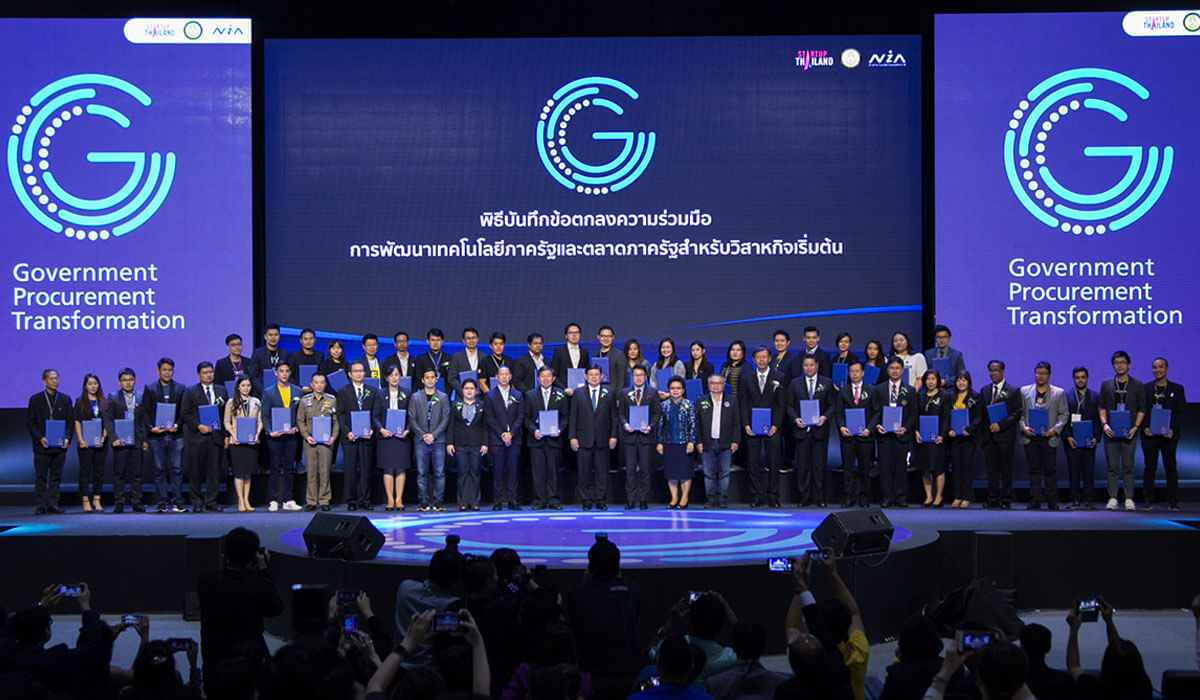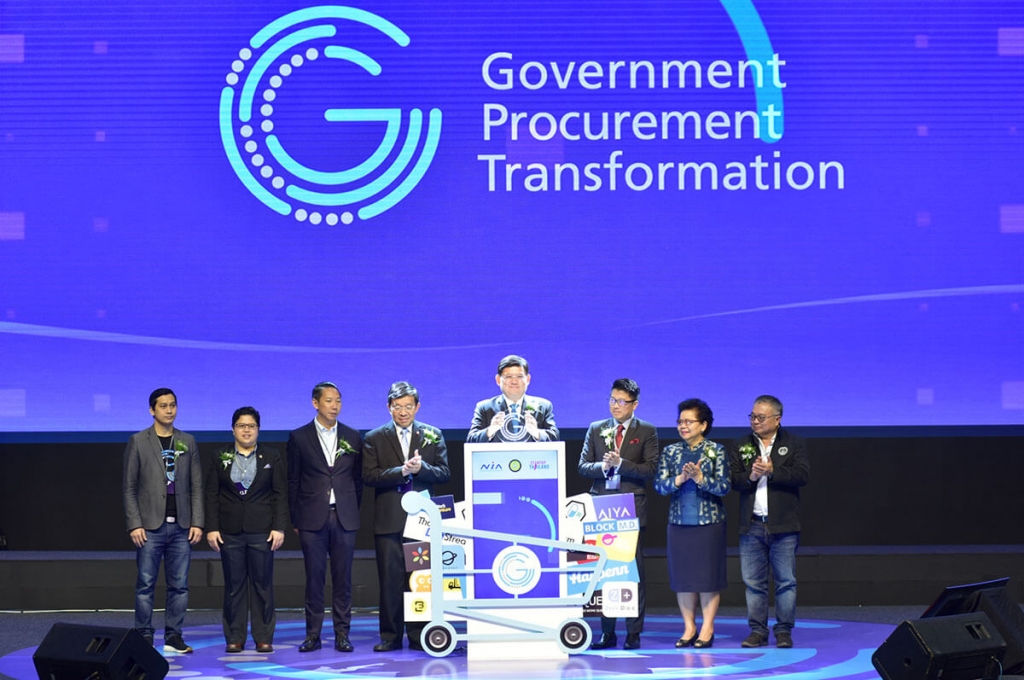Government sector estimated to be worth 30 billion baht in 3 years for startups.
2 October 2018 Startups
The “Government Procurement Transformation” exhibition and conference by National Innovation Agency (NIA) was successfully ended alongside an effort to pursue the government’s policy of “new economy warier”. The government market will be an engine to accelerate the growth, pooling innovations from startups and unlock barriers of traditional government procurement.
The event showcases exhibition and conference, panel discussion of the success case study of those startups who help solving pain point of the government sector, for example QueQ application service that helps shorten waiting time of patients in seeing the doctors at Rajavithi Hospital.
More than 23 government agencies and 28 startups at the show such as the Royal Thai Office, Office of the Permanent Secretary of Public Health and some agencies have an agreement in form of memorandum of understanding with NIA and Digital Government Agency (DGA).
At the event, the Memorandum of Understanding (MoU) signing of the “Government Procurement and Startups between NIA, Science and Technology Ministry and Government Saving Bank”, and a collaboration of “Thailand Biennale Krabi 2018” were also taken place.
The two-day event were joined by more than 80 startups covering 7 solutions including defense technology, digital government, business facilitation, tourism, public utilities, domestic market development. The event is expected to create 1 billion baht in business matching value.
The Science Ministry targets that the government sector will generate some 30 billion baht of value to startups within three years, accounting for 1% of the state budget.

Innovation helps reform the government sector
“Many innovative startups can help reform the government in many aspects especially the public services improvement,” Suvit Maesincee, the Science and Technology Minister, told at the conference.
The government will be an “important market” to foster the growth of Thai startups because the government sector seriously focuses on the service quality and this will also become a “trusted reference” to other customers.
The Regulatory Sandbox Act has been now working to enable startups to offer services and products to the government sector without worrying about the official regulations. With the regulatory sandbox, the government sector will be able to test and try new solutions developed by local startups and once it’s found interesting, that can be used to form new term of reference (TOR).
Pun-arj Chairatana, Executive Director of NIA, said the government has already set up a special committee represented by several agencies such as the Budget Bureau, Office of the Auditor General of Thailand and others to do make special TORs for new technologies or startups.
According to a survey by NIA, startups found that there were three types of government demand. The government needs new technology such as big data, Artificial Intelligence, IT inspectors and chatbots to improve public services.
The government has many e-bid projects, with a total budget of 12 billion baht, but suppliers are scarce. Startups can fill this missing link, but they may be not disqualified for the government’s procurement regulations.
The general market that SMEs and startups are disadvantage, competing with large enterprises, as they are not qualified for the auction regulations.
NIA believes that the unlock limits of the government procurement will sustainably strengthen the startup business development and have the government sector as “site reference” of startups to ensure the private customers.

